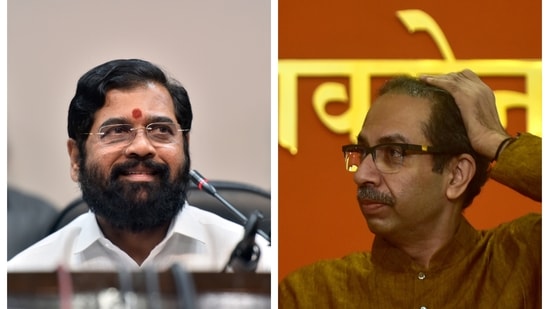Examining the defection laws
The Sena dispute is an opportunity for the apex court to explore deeper constitutional questions
A party whose leader does not command the support of the majority of its members. A group of so-called rebels who not only constitute the majority of its elected representatives but who also have not technically defied any whip or diktat. A breakaway faction that is recognised as the main party in the assembly and Parliament. The rebellion roiling the Shiv Sena represents a unique legal conundrum – one that seems to fall beyond the scope of the current defection laws. On Wednesday, the Supreme Court appeared to agree when Chief Justice NV Ramana said some of the issues raised by the petitions concerned wider constitutional issues and may require a larger bench.

Three questions lie at its core. One is about the various factions arising from a split. Currently, the Election Commission decides which is the parent entity and can retain the name and symbol. But the apex court may need to weigh in on whether the law needs to explicitly spell out what happens when the balance of numerical power is decidedly in one faction’s favour, whether the anti-defection statute needs to be strengthened and whether the power to decide on critical matters should rest with the political offices of the speaker or governor. The second is about timelines. The Shiv Sena case may have thrown up important issues but, at least in practical electoral terms, they will become moot in two years, when the state is scheduled for fresh assembly elections. In previous verdicts – including the 2017 Nabam Rebia case – the apex court has underlined its powers to turn the clock back and reinstate a government. It will be important to see what approach the apex court takes in this case. The third is about the state of internal democracy in political parties, and one that is beyond the scope of any judicial action. More defections underline a weakening of the relationship between a lawmaker and the party and the rise of transactional politics. Even if the apex court draws up more stringent guidelines, unless structural infirmities are addressed, the problem of defections is likely to linger.
The course of India’s electoral politics has been set by important legal interventions – the 1985 addition of the 10th Schedule that brought in anti-defection laws, the 1994 SR Bommai case that put fetters on the powers to dismiss state governments or the 2003 amendment that made two-thirds the required strength for a faction to legally defect. It now appears that the Shiv Sena case may throw up an opportunity to plug some lacunae in the anti-defection statute and clarify omissions. All eyes are on the top court.
Continue reading with HT Premium Subscription




